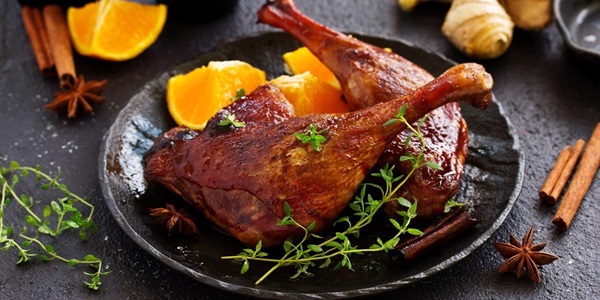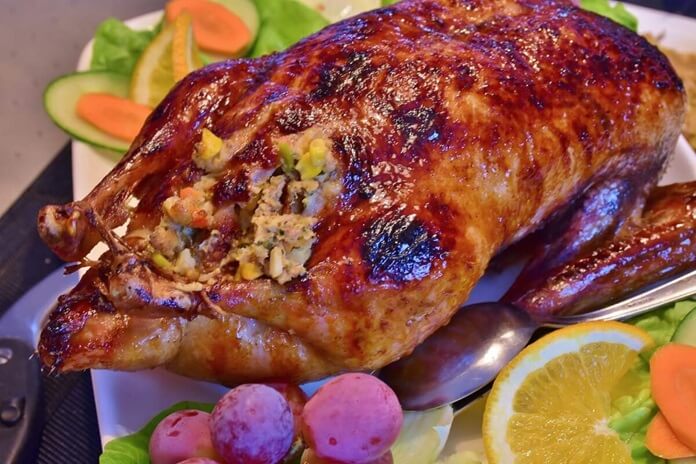National Peking Duck Day is observed annually on January 18 to recognize the national dish of China. The process of cooking Peking duck is rooted in tradition that has been refined over thousands of years, dating back to the Yuan Dynasty started by Kublai Khan. Today, to taste Peking duck, you don’t have to travel to China. You can find this dish in Chinese restaurants across the world. A key feature of Peking duck is its crispy, flavorful skin.
History of National Peking Duck Day
The exact date and origin of the first National Peking Duck Day is unclear. However, its popularity among food lovers has ensured that the celebration continues to be widely embraced.
Despite its simple appearance, the preparation of the Peking duck is quite intricate. The recipe is ancient, dating back to the Yuan Dynasty which was established by Kublai Khan. Like all recipes, the method for making Peking duck has changed and improved over time.
The White Beijing duck also known as Peking duck, is the bird that is traditionally roasted for this meal. The duck is butchered at 65 days old then plucked, pumped full of air between the skin and the meat, soaked in boiling water, and skewered. The duck is then hung to dry, glazed with sugar coating, and left for 24 hours to achieve its perfectly crispy skin.
The duck is roasted while hanging from the centre of the oven. This allows the fat to drip, basting the skin as it does. After this, Peking duck is sliced artfully by the chef before being served.

The traditional Peking duck meal starts with a serving of crispy skin and a sugar dip. Then thin pancakes are filled with tender duck meat, hoisin and bean sauces, cucumbers, onions, and garlic. Finally, leftover bones such as neck, wing joints, and feet are often used to make duck soup.
Also read, International Hot and Spicy Food Day – January 16, 2025
Timeline of National Peking Duck Day
| 1271 – 1368 (The Introduction of a Great Dish) | An early version of the Peking duck is served to Kublai Khan, leader of the Mongol Borjigin clan and first emperor of China’s Yuan Dynasty. |
| 1300 (The First Published Mention) | Hu Sihui, an imperial dietician, mentions ‘shāo yāzi’ — the original name for ‘Peking duck’ — in the ‘Complete Recipes for Dishes and Beverages’ manual, where he suggests roasting it inside the stomach of a sheep. |
| 1368 – 1644 (Ming Dynasty Reign) | The Peking roast duck becomes a mainstay on the Ming Dynasty imperial court’s menu. |
| 1416 (Peking Duck Specialist Restaurant Opens) | Bianyifang, a restaurant dedicated to preparing Peking duck using the old closed-oven roasting style, is established in the Xicheng District of Beijing. |
| The 1850s (Chinatown in New York City) | Chinatown is a densely populated neighbourhood in New York City, drawing foodies and tourists, and boasting several Peking duck outlets. |
| 1855 (The Xianyukou Bianyifang) | The Wang family hires an original Bianyifang chef and establishes the only Bianyifang restaurant that exists today in Qianmen, Beijing, continuing the Qing dynasty Beijing cuisine tradition. |
| 1864 (Another Famous Peking Duck Restaurant) | The Quanjude restaurant in Beijing, known for its roast duck speciality, was established by Yang Quanren, the man who developed the hang-oven to roast ducks. |
Five Interesting Facts About Duck
- Ducks have better vision than you do: The shape of ducks’ eyes enables them to see things near and far with sharp focus at the same time. Similarly, they can see almost 340 degrees around as their eyes are located on either side. Ducks can move each eye independently and with one eye open they can sleep to watch for predators. In a group, ducks take turns staying alert to protect the rest of the group from danger while they sleep.
- They are meticulously clean animals: If you observe a duck for a while, you will likely see them preening their feathers to keep them perfectly clean. Similarly, they also like to keep their nests clean and free of waste which can become a problem when dangerous fishing gear ends up in their waterways or homes.
- They are super-social animals: Ducks are most at ease when living with other ducks in their natural habitat. On the water, they gather in groups called “paddlings,” which helps protect them from predators. In these groups, ducks can spend their days foraging for food and sleeping soundly, knowing their friends will alert them of any danger.
- Ducks have regional accents: Regional accents in ducks are another ability they have to adapt to their environment. Middlesex University researcher Dr Victoria de Rijke recorded the sounds of ducks in the heart of London. He compared that sound with those of ducks living in the countryside. Through her research, she noticed that the ducks in London had a louder, rougher quack because they had to shout above the noise of city life. The ducks in the countryside produced “longer and more relaxed sounds.” Dr. de Rijke also observed that their calls were similar to those of people living in the same area.
- Duckbills are as sensitive as human fingertips and palms: Duckbills can feel things just like human fingers and hands. They have special touch sensors that help them find food in dirty water. If a duck’s bill gets broken, it can hurt a lot, which is a common problem for ducks in the foie gras industry, where workers force metal pipes into their throats.
Conclusion
National Peking Duck Day is celebrated on January 18 every year. The day reminds us of China’s iconic dish with origins dating back to the Yuan Dynasty. This dish’s preparation includes air-pumping, glazing, and roasting, yielding the signature crispy skin and tender meat that has made Peking duck a global favourite.
This dish’s journey from imperial courts to worldwide recognition highlights its cultural significance and culinary artistry. Food lovers celebrate a tradition that has been cherished for generations.
Frequently Ask Question
What is special about Peking duck?
Peking duck has been prepared from the Imperial era. The meat features thin, crisp skin, with authentic versions of the dish serving mostly the skin and little meat, sliced by the cook before the diners.
How many people live in China?
China has more than 1.4 billion people as of September 2020 which makes the most populated country on Earth.
How long do Chinese New Year celebrations last?
Chinese New Year celebrations last 15 days which is the biggest holiday in China and is often celebrated in January or February.
You may also like to read, National Fresh Squeezed Juice Day – January 15, 2025
